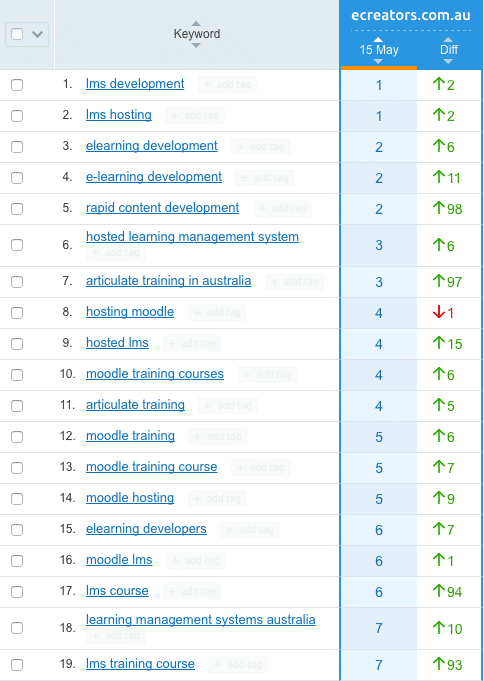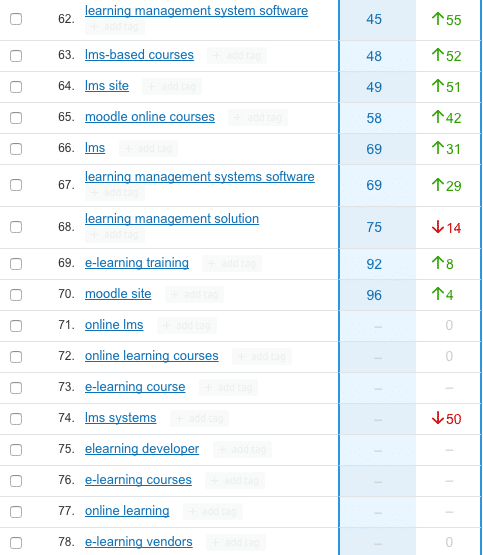How To Think Of New SEO Keywords For Your Site
Note: We highly encourage you to read How To Determine SEO Keywords For Your Website before diving into this one!
Ok, so you’ve worked awfully hard to build your website, write articles for your blog, decipher the inner workings of Google Analytics, analyse your competitors, and optimise for your chosen SEO keywords. (Whew, that’s a lot of work!)
Unfortunately SEO is a fickle thing, so your work in this domain is never really done. SEO is a long-term commitment rather than a one-off fix. With Google’s constantly-changing algorithm and competitors making moves in the rankings, you’ve got to stay agile and adjust your optimisations over time.
There are many, many ways you can go about doing this, but for this article we thought we’d cover something simple yet effective.
Optimising For New SEO Keywords
We don’t mean you should start from scratch and choose an entirely new/different set of keywords to try to rank for. Instead, look at the keywords you’re already optimising for and try to brainstorm similar, yet slightly different keywords. You’d be surprised at how different your rankings can be with one teeny-tiny change in a keyword phrase.
Here are a few ideas to get you started:
- Include both singular and plural forms (e.g. SEO Agencies Melbourne, SEO Agency Melbourne)
- Include multiple spellings of a word (e.g. gray, grey)
- Include synonyms or extremely similar-meaning words (e.g. school, classroom)
- Add and remove hyphens (e.g. e-learning, elearning, e learning)
- Swap words within a keyword phrase (e.g. Melbourne SEO Services, SEO Services Melbourne)
If you’ve gone through this exercise, you should end up with a lengthy list of keyword permutations. Now, add them to the SEO keyword list you were working with before and check to see where you rank for each one.


We recently added new keywords to one of our clients’ SEO campaigns and it was pretty alarming how differently they ranked for very similar keyword phrases:
- They ranked #6 for elearning developers, and somewhere outside the Top 100 for elearning developer.
- They ranked in the Top 10 for lms course and lms training course, but only #48 for lms-based courses.
- They ranked in the Top 10 for moodle training, moodle training course, and moodle training courses, but only #58 for moodle online courses.
With a keyword list 100+ long, it doesn’t make sense to optimise for all or even the majority of these keywords. Instead, what you should do is choose a variety of keyword phrases that you’re already ranking well for and focus on those.
Then, keep monitoring the entire list over time. It’s normal to see keywords rise and fall in the rankings, so if you see a lot of movement in yours from month to month, don’t be afraid to swap out old keywords for new ones on your website.
Check out these other articles we’ve written for tips on how to optimise your site:
- SEO To-Do List: A Recipe For SEO Success
- 7 SEO Strategies That Work
- Things You Should Be Doing To Optimise Your WordPress Site
- SEO Tips To Set Up Your Site For Optimisation on Day 1

Leave a comment